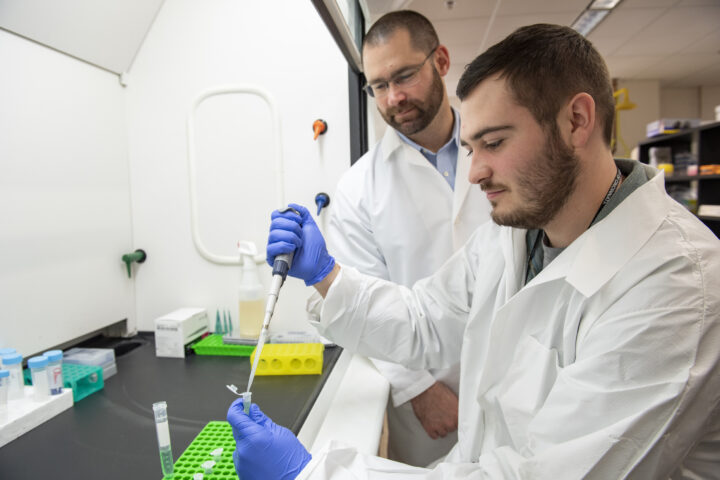Matthew J. Robson, PhD

Role of Sigma-1 Receptors in Traumatic Brain Injury
Summary
Nearly 3 million Americans suffer a traumatic brain injury (TBI) annually, creating an enormous medical and economic burden that can persist long beyond the acute stages of injury. TBI predisposes individuals to increased rates of debilitating neurodegenerative disorders and the generation of enduring neuropsychiatric disorders such as depression, anxiety, social withdrawal and post-traumatic stress disorder (PTSD). Although a large amount of work has been conducted in the attempt to identify molecular targets for pharmacotherapies aimed at treating TBI, there is currently a lack of any FDA-approved medications for TBI. Sigma-1 receptors are ubiquitously expressed protein modulators that are highly amenable to pharmacologic manipulation and are posited as molecular targets for the development of therapies to treat various neurodegenerative and neuropsychiatric disorders. Sigma-1 receptors are known regulators of critical cellular functions, including mitochondrial function, cellular stress, calcium signaling and the activity of several ion channels/transporters. Additionally, these proteins are known modulators of Tau phosphorylation, a pathology correlated with the development of several neurodegenerative disorders. The purpose of the proposed preclinical studies is to ascertain whether the activation of sigma-1 receptors may be a viable strategy for the acute treatment of TBI. Studies herein utilize a preclinical model for TBI in combination with genetic and pharmacologic manipulation of sigma-1 receptor expression and function, respectively, to determine whether sigma-1 receptors modulate secondary injury cascades within the brain associated with the chronic, debilitating deficits of TBI. Ultimately, this project will elucidate the actions of sigma-1 receptors in the context of neurotrauma and may be the foundational studies in the development of sigma-1 receptor agonists as clinically utilized pharmacotherapies for the treatment of TBI.

Matthew J. Robson, PhD., Division of Pharmaceutical Sciences, working with student in his lab.
I am extremely thankful for the PhRMA Foundation supporting my research endeavors. As a new investigator, funds are limited and the support provided by the receipt of a PhRMA Foundation Research Starter Grant has allowed my research group to generate data that has been invaluable for grant applications for future, sustained support of my laboratory. PhRMA Foundation support is the driver of studies within my independent lab that may provide the scientific foundation for the generation of the first clinical pharmacotherapy for TBI.